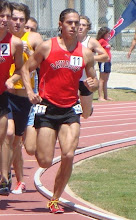The good news that resulted in my departure from London being pushed back yet again was that I was able to enroll in an ADAPT Level 1 Certification Course. The ADAPT (Art du Déplacement And Parkour Teaching) certification was a system set up in a collaborative effort between Parkour Generations and the Yamakasi/ADD Academy to establish an internationally recognized standard of parkour teaching excellence. It is currently the only internationally recognized standard and there have been certification sessions held in Brazil, the US and France.
The goal of ADAPT was to create an international standard of teaching excellence for parkour by which to train and certify instructors for teaching parkour and l’art du déplacement. The program was started recently after several years of development after the need was identified for some sort of standardization of instructors. In Britain in particular there had been huge increases in demand for parkour instructors, especially after the airing of the “Jump Britain” documentary by BBC 4 (see below).
Since most non-practitioners can be easily wowed by basic movements/bravado lots of people could claim to be proficient in a sport which they had no idea how to do, let alone teach. The need for a nation-wide standard was evident, especially since many of these individuals would be working with children.
There are currently 3 levels of ADAPT certification. The third level is the most advanced, and there are currently only 10 people that are Level 3. These include the directors of Parkour Generations, the Yamakasi, and other people that helped to develop the sport in its early days in Lisses/Evry, the birthplace of the sport.
Level 2 certification is require to be a “Full Instructor” and to be able to lead classes. It requires a very high degree of physical proficiency and experience, and also substantial teaching experience. A Level 2 certification basically means that the instructor is capable of “teaching the fundamentals of parkour to anyone wishing to learn, in any situation”. Since the instructor may find themselves teaching multiple classes per day it is necessary that they be able to comfortably perform a high volume of any movements or conditioning that they ask the class to do.
Level 1 is the most basic level of certification and is essentially an “Assistant Instructor”. The real emphasis with the Level I qualification is in the “transfer of parkour knowledge to the student”. So it’s really not how well you do parkour, but how well you can teach it. While Assistant Instructors are not allowed to lead classes by themselves, the certification allows them to start gaining the experience necessary to gain a Level 2 certification. According to the Parkour Generations website the Level 1 Instructor must have good knowledge in the following areas:
- Definition, history and principles of parkour
- Parkour terminology
- Parkour ability
- Body management: stretching, preparation, maintenance
- Teaching skills and awareness of best practice standards
- Basic injury management and rehabilitation knowledge
“The candidate must complete the Assessment Course, which involves practical assessments as well as a written assessment, and can then begin logging the required minimum 10 sessions of supervised coaching. There will be a further 2 assessed live coaching sessions at the end of this period, and if successful the candidate will then receive the ADAPT Level One Qualification.” (Courtesy of Parkour Generations website)
The course runs from October 26th to October 29th which means that I won’t be able to get all of my practical assessment hours before I leave for Australia on November 1st. Hopefully I’ll be able to get a number of my hours in Melbourne and then finish up the final coaching sessions when I return to London in March 2011.
Since one of my main objectives for this trip is to take the teaching techniques and institutional structures back with me to the States, I’m very excited to be taking part in this certification as it will be a big check mark on my “list of things to do during the Watson year”. I will keep you all posted on how the course goes next week.
Subscribe to:
Post Comments (Atom)


.jpg)



No comments:
Post a Comment